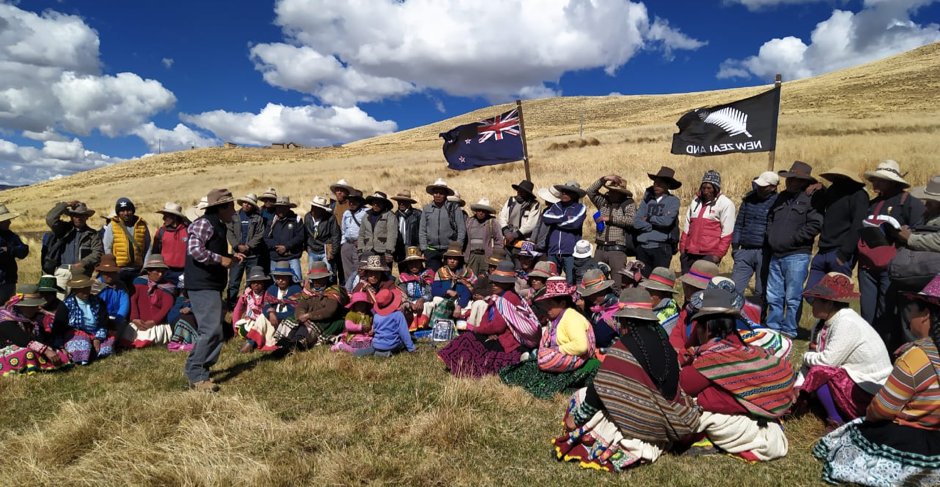A lack of collaboration and cooperation is standing in the way to a real improvement in sustainability performance. Businesses, cooperations and scientists should stop developing ever more indicators and standards; and instead work together to rise to the challenges of sustainable development.
Read MoreHow will the world feed 9 billion people by 2050? And how should the New Zealand agriculture respond to this challenge? Focusing on quality rather than quantity might well be the solution, argues Sam Mander.
Read MoreJon Manhire, director of The AgriBusiness Group and Chair of the Lincoln University BHU Organics Trust was invited to attend the address from the Prince of Wales on the State of the Global Environment at Lincoln University. In his powerful speech, the Prince addressed the devastating environmental issues we are faced with and our responsibility and the many opportunities to solve the current crisis.
Read MoreWhat do the top performers from each farm sector do to achieve the highest interest return on total farm capital employed, and what does the rather gloomy sounding ‘misery index’ say about the farm business? Stuart Ford outlines the key points from the recently published Brown Glassford’s Farm Survey.
Read MoreIn New Zealand, there is a focus on freshwater quality due to serious deterioration of waterways. This has led to primary sectors taking significant action to mitigate their impacts as well as government regulation. The AgriBusiness Group has been working closely within the kiwifruit sector for many years on various sustainability projects, including nutrient management. In this article, we look at how New Zealand’s most valuable horticultural sector is responding to the freshwater challenge and what the upcoming proposed government regulations mean for it.
Read MoreHow to equip thousands of widely dispersed farmers across the Peruvian Andes with the knowledge of how to apply good dairy farming practices and improve their families’ livelihoods? By training a small number of farmers to become extension agents in their local area. At the start, the New Zealand Peru Dairy Support project encountered many difficulties by employing state-run Research & Extension professionals. Since then, local smallholder farmers have been taking on the role as an extension agent instead, and three years down the track, the project is starting to see excellent outcomes with good prospects for the future.
Read MoreThe recently proposed Essential Freshwater Package raised the discussion once more how thousands of farmers across the country can adapt their systems to collaboratively achieve a common goal. Our environmental consultant Dave Lucock believes that a focus on collaboration and a farm-systems approach should be the answer. And sometimes, squeezing unique farm systems into set regulatory requirements can do more harm than good.
Read MoreAnother change on the Canterbury Plains is on the horizon. It is white and or black, with some shades of brown, has four legs, provides us with a white liquid fit for human consumption but it goes baa instead of moo! Sheep milking is starting to make headway with a handful of farmers milking small flocks of sheep to provide consumers with highly nutritional milk products such as cheese, yoghurt, fresh milk and gelato. Sarah O’Connell is taking a closer look at the opportunities and challenges of the sheep milking industry.
Read MoreThe agricultural industry is rapidly changing. Amelia Wood is reflecting on how farming has evolved over the last few decades and explores what farming might look like in the future. Rural professionals play a key role to show a clear path for farmers to navigate regulatory standards and achieve environmental and economic targets. Understanding the uniqueness of each farming business and its surrounding landscape is the key to future success.
Read MoreLast month the Government released its draft Essential Freshwater Package, which has a strong sense of urgency to improve water quality this generation. Charlotte Irving is taking a closer look at how the new bottom line for nitrogen levels came about and calls for more scientific research across the country’s local waterways.
Read More









